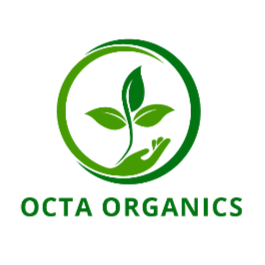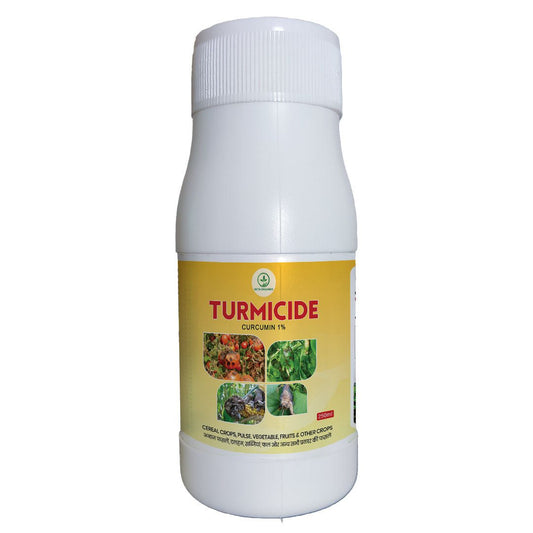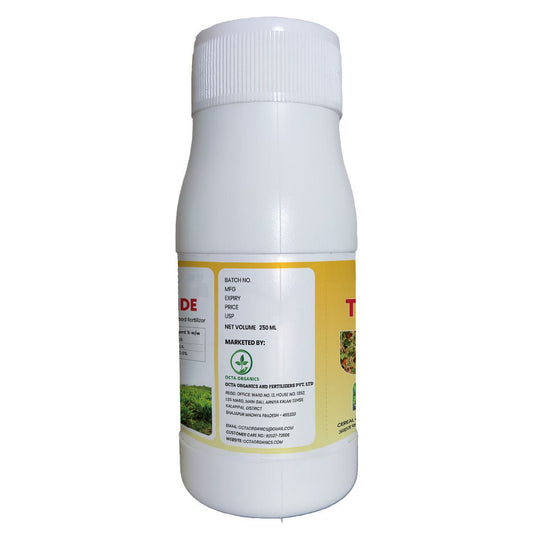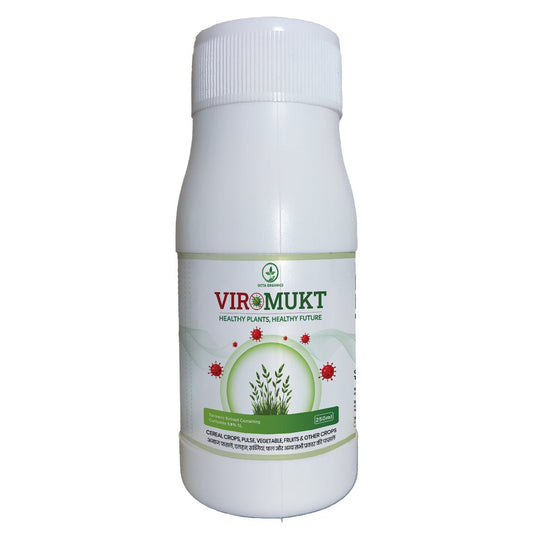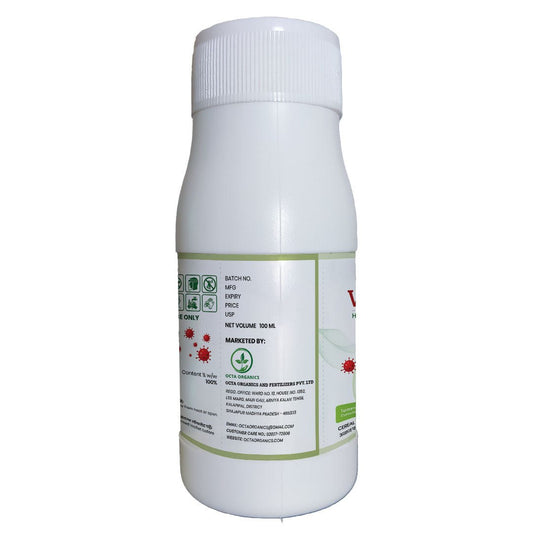Collection: Products
-
Turmicide – Natural Solution for Fungal Disease Control in Plants
Regular price From Rs. 399.00Regular priceUnit price / per -
Viromukt – Advanced Organic Defense Against Plant Viruses & Virus-Spreading Insects
Regular price From Rs. 499.00Regular priceUnit price / per
Frequently Asked Questions
Are Octa Organics products certified and tested?
Yes, all agricultural products by Octa Organics are completely certified, regulatory compliant, and rigorously tested. We are committed to providing high-quality, chemical-free agricultural solutions and are certified by recognized bodies. Our organic pesticides for plants are designed to be eco-friendly and are a suitable alternative to chemical fertilizers. We test each product intensively to analyze its effects on plants, humans, and the environment, ensuring they are completely safe.
Are all your products 100% organic and safe for edible crops?
Yes, all products by Octa Organics are 100% natural, organic, and safe for use on edible crops. Our products are completely chemical-free and are created with advanced organic practices to ensure they promote plant growth without causing any side effects. With our high-quality organic insecticides and organic pesticides for plants, we aim to promote sustainable organic farming by providing effective agricultural solutions to prevent pest infestations and keep your plants healthy.
How do I know which product is right for my crop problem?
To choose the right product for your crop problem, start by identifying the specific issue, then research available solutions, and finally evaluate the cost and benefit of each option. For example, if your plants are severely affected by fungal infection, which results in slow plant growth and poor yield, you can use Turmicide by Octa Organics to overcome this problem. Consulting with agricultural experts and staying updated on organic pesticides for plants can also help you make informed decisions.
How to apply organic pesticide?
To effectively apply organic pesticides for plants, mix them according to the instructions on the product label or recipe, and then apply them thoroughly to the affected plants, ensuring all surfaces are covered. It's crucial to apply pesticides during the cooler parts of the day, like early morning or late evening, and to consider the wind conditions to minimize drift. Choose the organic pesticide based on the type of pest or disease affecting your plants, as different pesticides work differently.
How often should pest control be done in agricultural fields?
The frequency of pest control in agricultural fields varies greatly depending on several factors, but generally, it's recommended to use an Integrated Pest Management (IPM) approach, which emphasizes monitoring and only applying pesticides when pest populations reach damaging levels. This approach combines cultural, biological, and chemical methods to manage pests effectively and sustainably. Organic products are highly recommended for successful pest control.
How is pest control done on farms?
Pest control in farms is achieved through a combination of methods, including cultural practices, biological controls, and, when necessary, chemical controls. Integrated Pest Management (IPM) is a common approach that prioritizes prevention and uses the least toxic methods first. One of these methods is using organic insecticides that are derived from natural substances. Other methods include crop rotation, introduction of natural predators, habitat manipulation, and fumigation.
Is pest control necessary in agriculture?
Yes, pest control is absolutely necessary in agriculture. It's crucial for protecting crops from damage caused by various pests, ensuring food security, and maintaining economic viability for farmers. Without effective pest control, farmers would face significant yield losses, reduced crop quality, and potentially devastating economic consequences. Effective pest control done using organic pesticides for plants is also important to maintain soil health and fertility for future harvests.
How long after pest control should I plant?
The ideal time to grow plants in fields after pest control depends on the type of treatment used. For most contact pesticides (sprays, aerosols, etc.), it's generally recommended to wait 2 to 4 hours before re-entry. However, for systemic pesticides, desiccants (dusts/powders), herbicides, and fungicides, waiting times can range from 2 hours to 1 day or even 2 days. On the other hand, organic insecticides generally have no or quite less waiting time to start growing plants again in fields.
